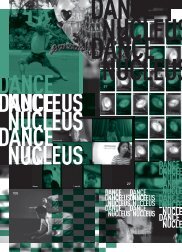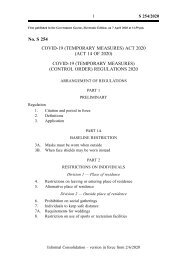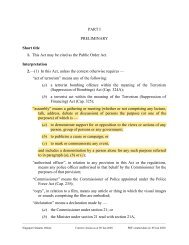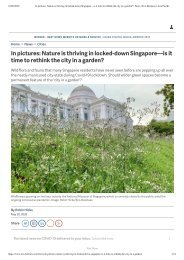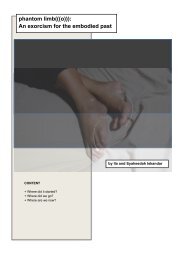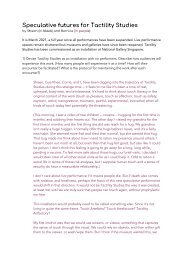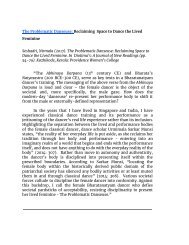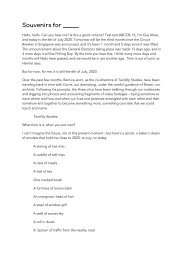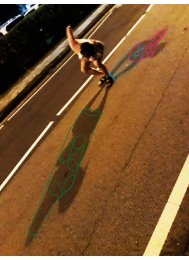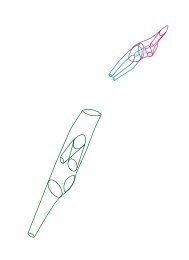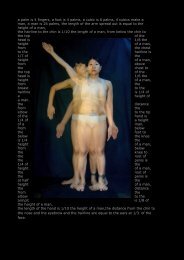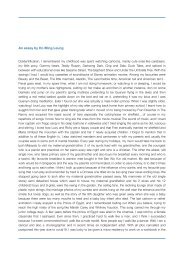Critical Path Digitalmeetup_Transcript
You also want an ePaper? Increase the reach of your titles
YUMPU automatically turns print PDFs into web optimized ePapers that Google loves.
Charemaine Seet<br />
I think it is really interesting that we have people in our discussion group who are coming a<br />
pure Asian background and still living in an Asian culture.<br />
Lu Shirley Dai<br />
I have been thinking a lot about not seeing abstraction as power. We usually associate abstraction<br />
with theory because of its connection to Western philosophical structure that has been<br />
dominating much theoretical discourses and studies.<br />
But for me as an artist and as a person of colour, I think a lot about abstraction as my means of<br />
working and as means of representation. I think partially that’s what Juliana May was talking<br />
about. Because there is a distinction between me holding on to that power and me using it to<br />
address the symbolic representations, the references or even the political content that I want<br />
to talk about in a formal way in a structural way.<br />
A lot of the works I saw in New York were falling into this topic of identity politics. There is so<br />
much emotion already being expressed, not personal emotion, but trying to emphasise the<br />
aspect of emotion and almost making it as therapeutic. As an audience member, I find it really<br />
hard to relate. However, there is a really amazing Brazilian artist Lygia Pape whose works I saw<br />
in Mexico. In a film, she had three cubes on the ground––yellow, blue and white. Soon there<br />
were three black men coming out of the cubes, stepping, beating the drums and playing with<br />
the rhythm.<br />
For me that moment in the video was so powerful because I think she was exploring both how<br />
she could criticise or asking questions about abstraction through a different culture. I think that<br />
to me was more interesting than trying to eliminate abstraction in my work.<br />
Also, what exactly does cultural dance mean?<br />
Charemaine Seet<br />
I really love what Justine said. What dance is not cultural? ‘cultural dance’ is a loose meaningless<br />
term. I think we all know that abstraction is pretty much an international thing. Everyone<br />
uses it. My attitude is f***K it. Do your work, whether people accept it or not. When I was in<br />
the UK, people could not comprehend that I was involved in postmodern dance. It was really<br />
bad then but now that I am older things have improved. I can engage with postmodern dance<br />
on my own terms and I know it’s not going to be a problem.<br />
Faye Lim<br />
It feels to me that there are different ways to read the article – ways to meet our own needs.<br />
And it might bring up anger or sadness or self-reckoning. I’ll go back to something Ting said<br />
earlier and respond to Charmaine as well - about artists who are working and living in Asia.




